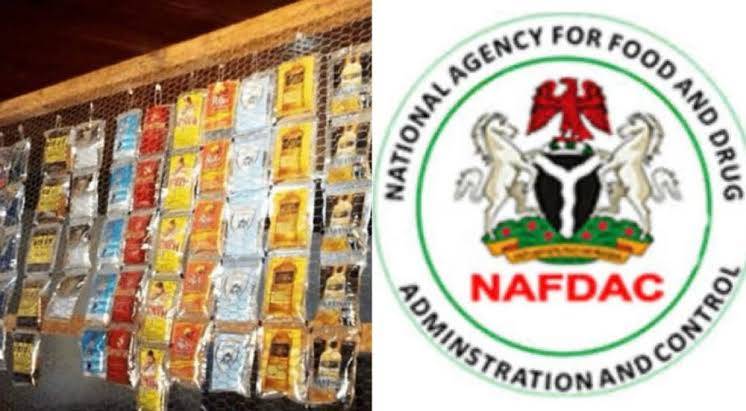The COO of A-Mobile, the first innovative approved mobile toilet operator in Lagos State, Mrs. Damilola Oloruntade, in this interview with The Liberation News, explained how she started mobile toilet business with just N25,000 after returning from the United Kingdom as a young lady.
She also spoke about the prospect of the business, as well as its challenges including what prospective entrepreneurs will necessarily need to start the business. Excerpts:
You are widely known as The Chief Operating Officer(COO) of A-Mobile, could you tell us who you really are?
My name is Mrs. Damilola Oloruntade and indeed the Chief Operating Officer of A-mobile Group, your one stop Sanitation, Hygiene and Pest Company.
How did you start the business? What inspired you and Why sanitation, hygiene and pest control?
I started as a young lady after going through a challenging phase in my growing up. I had a dream during this period and God showed me in the dream, mobile toilets, with people cleaning them. As a young lady and being someone that is a lover of God, I went into action on seeing this.
How has the business been going on?
God is faithful despite its been challenging, interesting but l must sincerely add, rewarding.
What can you say about the business environment in Lagos?
The business environment in Lagos has really improved when compared with when I started the business fully in 2008. This is precisely thirteen years ago.
It is still interesting to state here that I returned to Nigeria in 2008 with just just twenty-five thousand naira which was then one hundred pound sterling (£100). There is a saying that a lizard in Nigeria cannot be an alligator in the United Kingdom.
Upon my returning to Nigeria after spending over seven years abroad, God showed me in the dream about the business.
I met a NEW LAGOS. I was like ‘whaoo, so let me go ahead and start the dream I saw and I was so impressed by the development I saw at the ministry. The people l met were ready to assist in ensuring that the dream came alive. They embraced new technology and as the popular saying goes, the rest is history. Today, l can conveniently say that to God be the glory.
The business environment has really improved and new technology is very key to be able to meet up with international standards.
What is your relationship with the regulatory ministry and the state government?
Our relationship with the regulatory authorities from day one of our business is cordial. and we can say they are so supportive and give so much support to thrive in the business. We have joined hands with the government from day one in providing jobs for the teeming population through one of our project called Partners in Cleaning the Environment(PACE).
This is an environmental initiative that is solely run and approved by the Lagos state government and meant to ensure that some communities are kept clean. The initiative as mentioned earlier also provide jobs for the people that reside in such communities.
What can you say about the sanitation industry in Nigeria?
The sector has evolved over the years and this evolution needs more technology based products that suit our environment. It is imperative that the citizenry of our great nation understand that sanitation is everyone’s responsibility and not just that of the government if we ever want to meet up with international standards.
Nigeria is a signatory to several UN charters on Sanitation and Hygiene, how is the country fairing globally?
In this area, Nigeria still has a lot to do to meet up with the international charters on sanitation and hygiene. I believe we can do better if the private and the government parastatals collaborate genuinely and with the sincere mindset of bringing proper change to the industry including avoiding all acts of selfishness.
What can you say about open defecation in Lagos?
It is so sad that as governments are preaching this, the citizenry are of the opinion that they can do whatever they like but this must surely stop. The Lagos state government is working with toilets’ operators and other private sector stakeholders in the state to curb this.
As we all know, migration into Lagos is increasing daily, and this means that if this menace is not curbed by ensuring citizens’ adherence to government’s policies on open defecation, then our dream of becoming an open defecation free state will be diminished.
So, we as a company have joined the Lagos State Government in putting an end to this by providing clean, hygienically accessible toilets with trained cleaners at strategic places in Lagos state. In some months to come, we are planning to place toilets at strategic locations that are prone to open defecation. These toilets shall be free for children while adults shall pay a token to use the provided services. This will also provide jobs for inhabitants of Lagos State.
How many public mobile toilets do you think are needed in Lagos to make the city a defecation free state?
We need over 190,000 standard mobile toilets for the over 10 million people in Lagos State.
How many mobile toilets are in Lagos presently?
We have over 2000 standard mobile toilets in Lagos.
What is the capacity of your company for handling open defecation in Lagos?
We represent one of the largest mobile toilets’ manufacturers in Europe that are passionate and willing to support us in our bid to combat open defecation in Lagos and Nigeria as a whole. So, we have all the requisite trainings and expertise to combat this.
What is the best way to eradicate open defecation in Lagos?
The best ways to combat open defecation include awareness advocacy, training of operators, allowing private sector to scale, technology, enforcement of policy, provision of clean, hygienic and technology based toilets especially at areas that are prone to open defecation including provision of toilets at strategic places.
What is your advice for upcoming investors/entrepreneurs in the sanitation industry?
Upcoming investors should understand that the sanitation and hygiene industry demands knowledge, patience, and the discipline of ensuring that state policies are followed.












